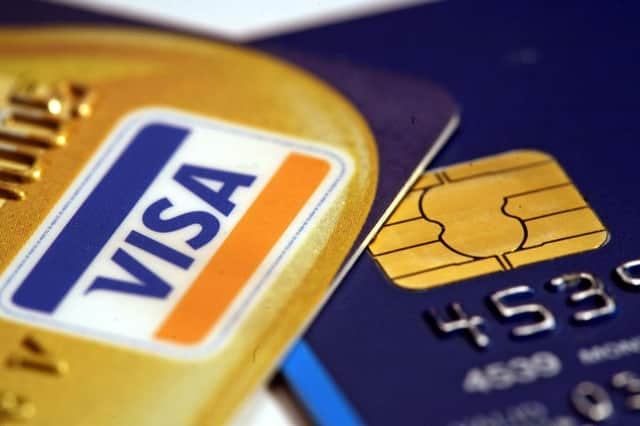Don't spend, spend, spend what you cannot afford


My parents brought me up with a strong work ethic along the lines of “nothing’s worth having unless you work for it first”.
Or something like that.
Dad used to go one step further – when it came to trying out a racing car for the first time at Silverstone, or going flying at Sywell Aerodrome, his stance was that he would always be prepared to pay for my first experience – but if I wanted to repeat it, finding the wherewithal to do so would be down to me.
Advertisement
Hide AdAdvertisement
Hide AdWhen one year I set my heart on having a particular cassette radio player (we’re back in the late seventies here!) I had to find myself a summer job and earn the cash for it, rather than waiting for a handout.
Along the way, not only did I learn the value of money, I learned to accept that culture of working for whatever it was that I wanted.
Before too much longer there’s going to be a new generation of young people leaving school, college and university and looking to settle down.
What will their consumer experience be?
At the weekend I heard that personal debt levels are heading for the same kind of excesses that the nation experienced during the boom of the 1980s and also immediately before the financial crash of 2008.
Advertisement
Hide AdAdvertisement
Hide AdI remember hearing the early morning news as I was driving to a studio and learning that Lehman Brothers – at the time the fourth largest investment bank in the United States – had filed for bankruptcy.
The news sparked a global catastrophe as the prime mortgage business of the United States unravelled.
People were rudely awakened to the fact that their home secured borrowings were, in fact, not secured after all and lenders found that the mortgage assets they were holding against those borrowings were largely worthless.
It caused huge damage to global financial trade as organisations rushed to get out of the market.
Advertisement
Hide AdAdvertisement
Hide AdIt’s arguable that 9/08 produced as much terror as 9/11, albeit without the huge loss of life that went with it.
That said though, lives were lost, careers vanished and livelihoods were summarily taken away.
Now it seems that we could be on the brink of the same thing happening all over again, this time with personal debt once more. Harry Enfield’s “Loadsamoney” might have been killed off in front of an audience of millions of primetime viewers, but quietly his values – or the lack of them – have been resurfacing.
Why is this?
Are we now so fatalistic about interest rates/Brexit/unemployment that we’re just going to spend what we don’t have today and worry about tomorrow when it comes?
Advertisement
Hide AdAdvertisement
Hide AdBack in my banking days it was sometimes my task to find out why someone’s finances had gone awry.
No matter what they earned (and some earned very large sums indeed), without exception those customers had spent it all plus a little more by the time the next pay cheque came in.
It was even excused as being part of human nature.
Why?
And when you investigated what came in against what went out it was amazing to find the proportion of people for whom satellite television – with ALL the channels – was classed as being essential, rather than a luxury.
If the writing’s on the wall there’s time still to read it.
My parents used to say that you can’t spend what you haven’t got.
Although strictly untrue, isn’t it a maxim from yesteryear with present day relevance?